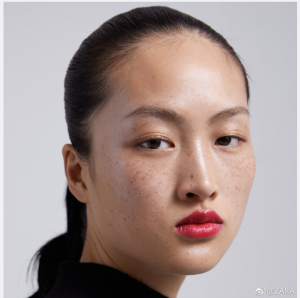5 Times Western Companies Angered Chinese Consumers (and How You Can Avoid the Same Mistakes)
To companies in the West, Chinese consumers might seem like a mystery. The differences in culture, values and history are clear. Advertising and attempting to connect with Chinese consumers is daunting. Not only is there a language barrier, China’s history and culture remains largely elusive to the average person in the UK. Thus, it is important for SMEs to research and learn from previous case studies. The failings of companies before can pave a way for future relations and ideas. Crucially, China is the second largest consumer market. If UK companies neglect forming a relationship with Chinese consumers, we risk missing out on billions of pounds annually.
When launching a digital marketing campaign, you need to do research, research and more research! You wouldn’t want to head into an exam without having studied before. Therefore, to get the most out of your digital marketing channels, you must learn about your customer. Their likes, dislikes and what makes them tick, should be at the forefront of your campaign.
5 Ways to Avoid
Angering Chinese Consumers:
1. Research China’s standards of beauty, its history and customs.
2. Respect cultural differences.
3. Adopt local tastes for limited edition food, beverages and other products.
4. Use Chinese social media for research and community building, not just marketing.
5. Be aware of differences such as clothing sizes and average height.
5 Times Western Brands Angered Chinese Consumers
1. Zara
Source: Zara is the latest fashion brand to anger Chinese with ‘racist’ ad
In 2019, Zara posted an advertisement to their Weibo Account. Chinese model Li Jingwen wears lipstick and natural make-up, showcasing her freckles. This is where the outrage sparked. Freckles have been trending in Western fashion, along with tanned skin. In stark contrast, fair skin is the ongoing trend in Asia. Chinese consumers lashed out at Zara, claiming they were ‘uglifying China’. Though many view this outrage as unjustified, it is worth acknowledging that different countries have different beauty standards, leading to differing expectations in advertisement.
2. Balenciaga
Source: Chinese angry over gaudy Balenciaga ads, call them ‘insult to Chinese people’
In August, Balenciaga launched an advertising campaign in line with Chinese Valentines’s Day. The images of the newly released bag are photo shopped in a 90s-esque fashion. The bag itself features a bold graffiti font. However, Chinese consumers hated the design choices with the bag and the ad campaign. They called it ‘gaudy’ and ‘insulting’. Once raises the comparison between a European campaign that was sophisticated and complex. Again, this 90s revival can be seen in Western youths but is not so present in current Chinese trends. Importantly, Chinese consumers are craving sophisticated advertising.
3. Mercedes Benz
Source: Mercedes-Benz sorry for offending China by quoting Dalai Lama
In 2018, Mercedes Benz apologised publicly for an advertisement that featured a quote from the Dalai Lama. Political sensitivity is of the utmost importance when advertising in foreign countries. Recognising that every country has its own pressure points and using this awareness in campaigns, will save Western companies from boycotts and online outrage.
4. Marriott
In 2018, the Beijing government suspended access to the Marriott website. The website had featured Tibet, Hong Kong, Macau and Taiwan as separate countries to China. Marriott has over a hundred hotels across China and has stated China is its largest market. Importantly, territorial claims are an extremely touchy subject in China. Thus, steering clear of upset is achieved by abiding to popular Chinese governmental consensus.
5. KFC and Apple
Lastly, anger directed at KFC and Apple in 2016 was not caused by the brand’s themselves. Instead, KFC and Apple received heat from Chinese patriots for representing American-ness. For context, American officials in Washington opposed Beijing’s efforts to claim the South China Sea. Chinese patriots thus expressed anger through filming themselves smashing Apple phones and ordering others to stop eating at KFC (the most popular fast food brand in the country).
Tap into Chinese consumers with digital marketing:
GlobePay offers British companies Alipay, WeChat Pay and UnionPay transactions. GlobePay also provides companies with digital maketing channels: WeChat Official Accounts, Mini-programs and Alipay (geo-location) Discovery. We can also produce Mandarin content for your social media channels.
To learn more, click here to contact us.
Click here for Top 3 Chinese Payment Gateways For Your Website.














